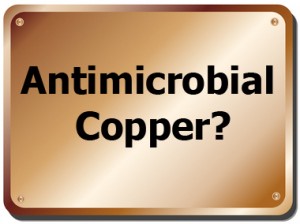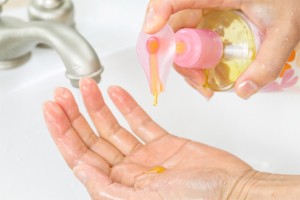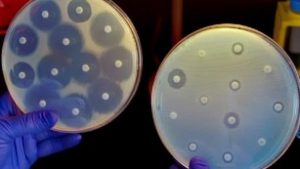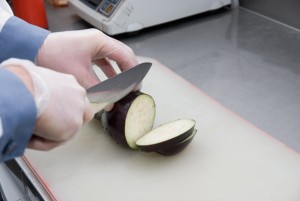There is a wonderfully essay by Tal Abbady coming out in tomorrow’s New York Times (and available online now). A few years in Spain, and my mother’s last days, helped me see the futility of a sterilized life. Source: Less Disinfectant, More Rioja The essay is about many things, including differences between cultures (pun intended …
Well I am sad I missed this yesterday but there was an April Fools’ joke published in the Western University Gazette that had a microbiology of the built environment angle. “We’re holding Ivey business classes in there to decontaminate the premises,” Chakma said. Source: English Department relocated to broom closets | Spoof | westerngazette.ca “There …
Interesting article addressing the risks of using copper in human structures for its antimicrobial qualities. Copper resistant bacteria could prove to be a risk for human health, as certain parts of the human immune system (notably macrophages) utilize it to dispatch potentially dangerous microbes. While many places use copper as a safety measure against harmful …
Anyone considering the possibility of welcoming a new furry friend into their home must first come to terms with an unfortunate fact: animals are dirty, like us most of them have lots of hair and are messy. And for a place like the Berkeley Animal Shelter, which sees well over a thousand animals each year, “poop …
New research has shown that patients take more than astronomical medical bills away from hospital visits; they take away superbugs as well. This research letter published in JAMA Internal Medicine by Jie Cao et al., found that 24.1% of patients moving from the hospital to a post acute care facility had at least one multidrug …
You have all heard of Tilikum the killer whale. He’s known for killing 3 of his trainers and is featured in the documentary Blackfish. Regardless of where you stand in all of the controversy, Tilikum has been making the news once again due to an untreatable bacterial infection in his lungs. Here is the statement from SeaWorld: …
A great review has come out on the use and ramifications of antibiotics in agroecosystems. “Antibiotics in Agroecosystems: Introduction to the Special Section” by Allison Frankiln et al is a review that attempts to get everyone on the same page about antibiotics, antibiotic resistant bacteria, and antibiotic resistant genes in the environment. The article highlights …
The Los Angeles Times posted an article yesterday on “Deadly superbugs from hospitals get stronger in the sewers and could end up in the Pacific Ocean”. While there is some truth to the matter, it is necessary to approach it with some skepticism. It is well known that antibiotic resistant bacteria are extremely prevalent in …
The authors of this new paper have really cooked up something interesting! “Microbial Safety of Wood in Contact with Food: A Review” by Florence Aviat, et al and published in Comprehensive Reviews in Food Science and Food Safety is an 86-reference review on materials found in kitchens. Elisabeth Bik did list this in her March 7 blog of new papers, but this one …
There are a few news articles that have been coming out (like this one) that draw attention to this recently published paper in ISME Journal, entitled “Iron availability shapes the evolution of bacteriocin resistance in Pseudomonas aeruginosa.” The big picture of the paper was to study how resistance evolves and to explore the effectiveness of …









